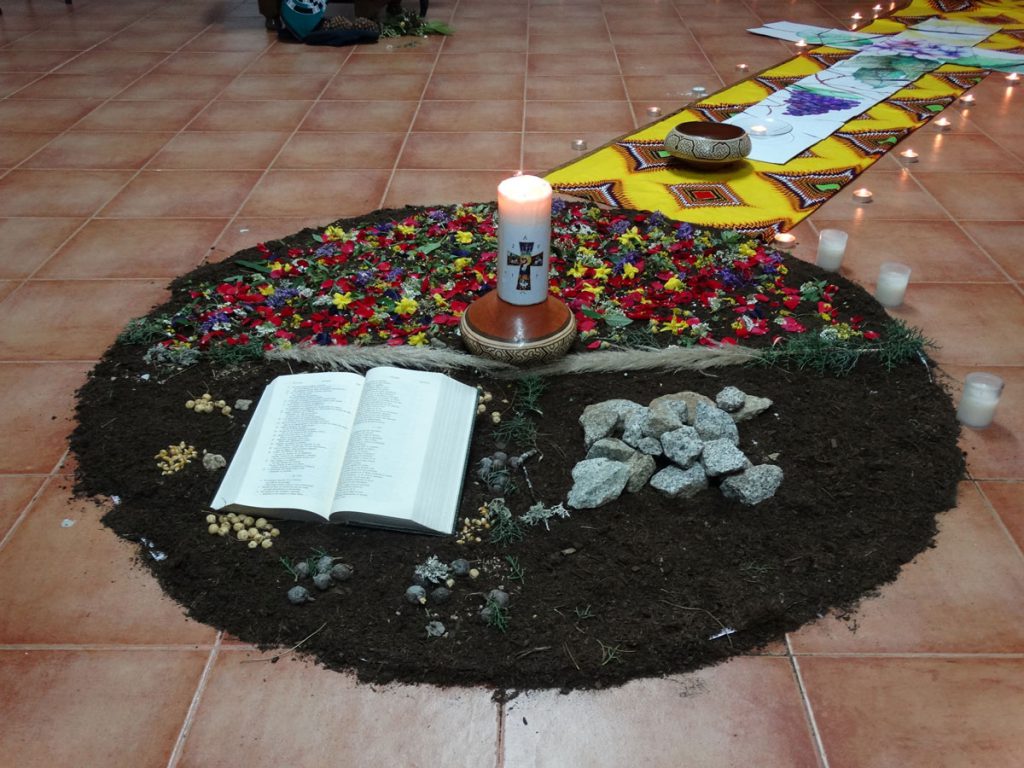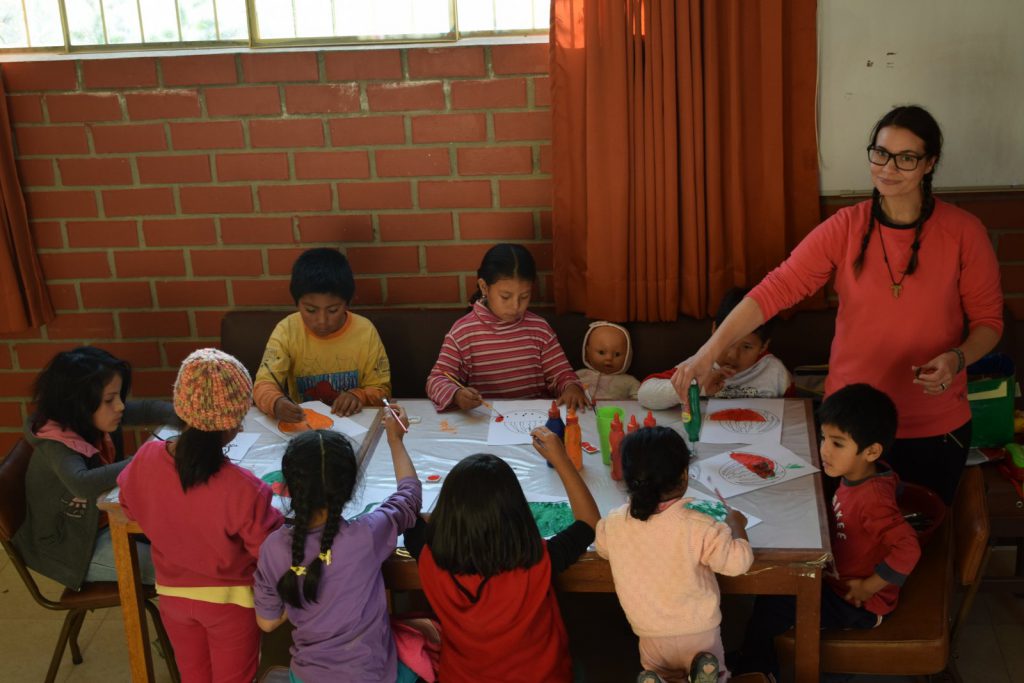
September – That the Comboni Missionary Sisters, gathered for the Inter-Chapter Assembly, may reflect upon and understand more deeply the processes in hand with the eyes and heart of God. Lord hear us.

September – That the Comboni Missionary Sisters, gathered for the Inter-Chapter Assembly, may reflect upon and understand more deeply the processes in hand with the eyes and heart of God. Lord hear us.
Some members of the Comboni Family (a priest, a brother, a sister and laity of the Group of Comboni Spirituality), most of them originally from the diocese of Balsas, held a week of missionary and vocational animation in Balsas (MA) in the parishes of Our Lady of Perpetual Help and of St. Anthony. There were several celebrations with beautiful testimonies, moments lived in a family atmosphere and missionary passion. The activity was also held in view of the Great Parish Missionary Week that will take place in November in the same city, and also marked the celebration of the 25th anniversary of consecrated life of Sr. Maria do Socorro Ribeiro, a Comboni Missionary Sister of Balsas, which was celebrated on the Feast of the Assumption of Mary and Day of Religious and Consecrated Life in Brazil. The missionary and vocational week was an initiative of Our Lady of Perpetual Help Parish and was carried out with the commitment and participation of the Group of Comboni Spirituality together with some invited religious and missionaries.
Fr Raimundo Rocha, mccj
In June our meeting was not the usual formation meeting of Viseu, but rather a gathering of the Comboni family in Maia, which happens there annually and is prepared and organized by the Comboni Family Commission. This year we gathered on June 28-30 over the theme, “Let your heart be mission,” as this year’s topic for the Comboni Family.
It was a very beautiful meeting! First of all, only a small but diverse group attended, greatly enriching the perspectives and the sharing of the topics. Secondly, it was a gathering rich in reflection themes, but in a spirit of sharing as a Comboni family strengthening our ties of communion and friendship.
On Saturday morning, after morning prayers, Bishop António Couto of Lamego spoke on “The heart in the Bible.” We delved deeply in the biblical meaning of the heart and its significance. Then we saw what it means “to be mission” and Dom António shared some perspectives on how to be mission and do missionary work today and in today’s circumstances, giving concrete examples of groups and people who perform fruitful missionary work today.
Then the participants shared in the formative theme given by the bishop of Lamego, answering some questions he gave us.
In the afternoon, Comboni Sr. Arlete spoke to us. She spoke of the life of St. Daniel Comboni, his “passionate heart” for Africa, his “cordiality,” namely, how his heart moved for “all and how he kept everyone in his heart,” and his devotion to the Sacred Heart.
Later we shared again in groups what we had heard, trying to reflect together on how to live today, and in the same circumstances, this same passion and enthusiasm of Comboni.
At the end of the day, we celebrated Mass and then we had a sardinada where we could converse, socialize and strengthen our friendships. It was a beautiful and agreeable time!
On Sunday, after morning prayers, we gathered to share what we had reflected upon in groups the previous day. From here came new reflections as we continued to share and it was a time of joint meditation and mutual enrichment.
We ended with the Eucharist. Then we entrusted to the Lord all the life decisions we could take during this gathering, together with our missionary enthusiasm regenerated and strengthened at this meeting.
In this meeting, praying and sharing together, we animated one another as Comboni family to be mission, to be enthused by the proclamation and the witness, and to do so “immediately” with vigor and perseverance, in all circumstances!
Filipe Oliveira
Perhaps our idea of mission and of the world is a little rosy, but for me mission is a rainbow of colors, emotions, instants and learning. Mission is more than the vast blue sky I embrace every day at the beginning and at the end of it, it is more than the brown color of the desert’s sand that covers the ground. It is also more than the green of the scenery where some trees fight to stay green, or the grey of foggy days hiding the volcanos. Mission is an immensity of colors. It is the color of the faces that make me smile and the color of the stories I listen to hour after hour reminding me about what we are made of, and it is the color of all those hearts that teach me how it is possible to love more. But it is also the color of the smiles, the hugs, the tears and the color of the natural and human scenery. The daily mission to stick with them has a lot of colors.
They are the children who call to me in the streets or in the kindergarten, where I joyfully share my returning to being a child with them, giving myself without fear. They are the elderly who freely dance when they come to visit since, allow me to say it, for them we are often the only family they have. There are real stories of survival and struggle. Or the families when we gather to share it all, which is the sum of individual parts because it through this occasion that we meet and donate of ourselves without preconceptions or conditions, simply because that’s the way it is. It is also in the daily visits where I find the true meaning of my walking around and where I see the colors of the world here and now. Here in this little burg I daily live the experience of being me, with the essence of all the colors I feel inside and of those I allow myself to see in the world.
I confess to you that often I allow myself to be molded by them, by their experience of life and of God, that I allow myself to observe and where I have many teachers. So, I allow myself to get out of myself in order to learn from them. I always believed that they did not call me for nothing else but to love. To love these people, this culture and these customs. To love in all its aspects, in the falls in the errors, in the getting up and with the hope of being a better version of myself every single day. And even though over a year has gone by, I keep on learning from them – we learn together. Thus, each day I discover another color both inside and outside me, in this interchange of life, histories and faces where every day I discover the color of love.

PS. Love is not of one color. Love will also have the color you choose!
With love and gratitude,
Neuza Francisco, CLM